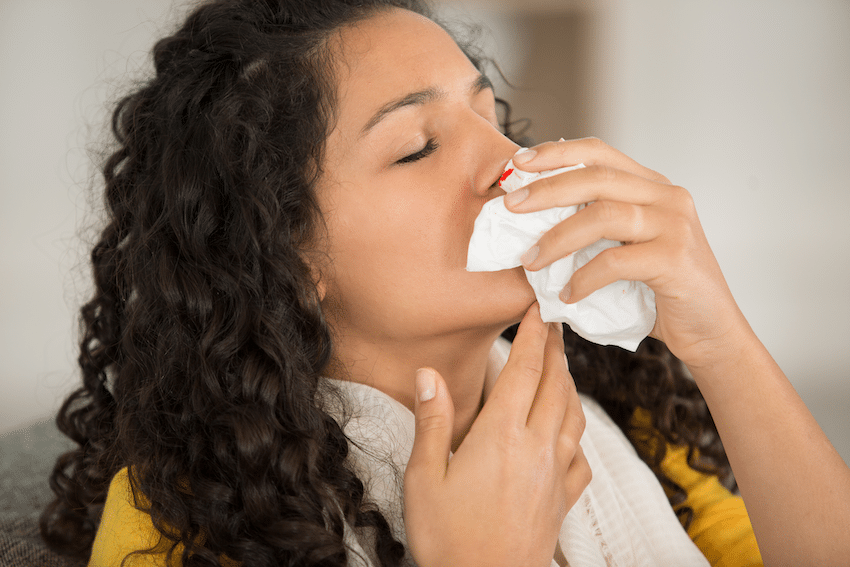Prefer to contact us online instead?
Use this form to send us a message. One of our recovery specialists will respond promptly.
Cocaine addiction treatment must address the range of problems that being addicted to cocaine or crack produces. That’s why we take a whole-person approach to addiction, providing a wide range of addiction and mental health therapies to support you in getting clean and building a strong foundation for long-term recovery.
The 2020 National Survey on Drug Use and Health found that 1.3 million people in the United States had a diagnosable cocaine use disorder in the previous 12 months. The same survey also found that 5.2 million people reported engaging in cocaine substance abuse in general.
Equally concerning, in the same year, 19,447 people died from a cocaine overdose, as reported by the Centers for Disease Control and Prevention (CDC).
Cocaine addiction diagnosis and treatment
Cocaine addiction is not a life sentence.
Many cocaine addiction treatment options exist to help you with recovery and cocaine abstinence, whether you start off in a residential treatment program or an outpatient treatment program such as the one we provide here at Lifetime Recovery in New Jersey. Getting help for cocaine addiction can restore your health, including your mental and physical stability—for a lifetime.
The level of care you need will depend on a variety of factors, which include:
- How often you use cocaine
- The presence of other types of substance abuse such as alcohol abuse
- How long you’ve been addicted to cocaine
- The amount of cocaine used when abusing cocaine
- Your family history of cocaine addiction
While some cocaine rehab patients choose to move through the levels of care, many choose to begin with outpatient treatment for cocaine addiction. This is because outpatient cocaine addiction treatment offers you the freedom and flexibility to maintain your daily life schedule.
The levels of care we offer at Lifetime Recovery include:
Medical detox
Medical detox, or detoxification, is the process of allowing the body to rid itself of the drug’s toxins by stopping its use. The resulting withdrawal symptoms may last for days or even months in long-term heavy users.
Withdrawal symptoms may include:
- Fatigue
- Appetite increase
- Slowed thinking
- Sleep problems
- Depression
- Paranoia and suspicion
- Agitation
- Extreme cravings for the drug
Cocaine withdrawal is usually safe but there are no approved medications to help ease the symptoms. People who have extreme withdrawal symptoms need inpatient treatment in a hospital or detox center to help them successfully detox.
Even though some people detox at home, it is not advised to do this because the symptoms may become severe and could result in depression, psychosis, or suicidal thoughts.
Partial hospitalization program (PHP)
A partial hospitalization program, also known as a PHP, is a program that is similar to a residential or inpatient program except that you don’t live at the treatment facility while receiving care.
Intensive outpatient program (IOP)
An intensive outpatient program or IOP is the second level of care, a great option for people who have either completed a PHP and need continued treatment or don’t need detox or inpatient treatment services.
Outpatient program
An outpatient program is similar to an IOP but it requires fewer hours and fewer days of commitment. Treatment and therapy sessions can often be scheduled during the day or evening.
Medication-assisted treatment (MAT)
It’s already been mentioned that there are no pharmaceuticals that specifically treat cocaine addiction. Still, medication-assisted treatment with other purposes can be helpful, such as antidepressants for the depression that you might struggle with during detox or any depression that is co-occurring with cocaine addiction.
Dual diagnosis
With addiction, there is commonly an underlying mental issue that may be driving the addiction. When a person has a substance use disorder and a mental disorder it is called a dual diagnosis and it is critical that both conditions be treated at the same time.
Throughout your treatment, you’re also taught relapse prevention skills to help you recognize triggers that make you want to use and develop healthy, long-term habits and behaviors to stay clean.
Cocaine addiction treatment therapies
Not only does treatment require you to stop using cocaine, but also requires you to heal from the damage caused by prior cocaine use. Therapy teaches you about your addiction and how to prevent it from taking over your life in the future.
Individual therapy
Individual therapy consists of one-on-one counseling sessions with your therapist. It’s also sometimes called “talk therapy.”
Group therapy
Addiction can feel like a lonely disease. Many people that suffer from addiction feel that no one understands what they’re going through. Group therapy can help you feel less isolated, knowing others are dealing with the same issues.
Psychoeducational therapy
When you understand substance abuse and how it affects humans, it becomes easier to overcome. This therapy approach focuses on educating patients about their disorder and their ways of coping.
Cognitive-behavioral therapy (CBT)
Cognitive-behavioral therapy, also known as CBT, is effective for long-term abstinence and preventing relapse. It is a type of talk therapy that helps you recognize and change destructive and distorted thought patterns that negatively influence your behavior.
Family therapy
It has been said that when one person in a family suffers from an addiction, it affects all members of the family. That’s why we offer family therapy to patients who attend our outpatient programs. When family members attend therapy together, they become educated about the disease, learn better communication skills, and can reclaim their positions in the family dynamic.
Alternative therapies
We believe that when the body, mind, or spirit is out of balance, they are all out of balance. Our cocaine addiction treatment program includes alternative therapies such as yoga, art therapy and acupuncture to help ease stress, anger, anxiety, and depression, and help you build healthy coping skills.
Cocaine addiction treatment center in New Jersey
Trying to detox and go through recovery alone is dangerous and lonely. Supervised detox allows you to start your journey more comfortably and safely. One key component of staying in recovery is having a supportive team of people helping you through every step. Our facility is a safe and peaceful place where you can come to share your struggles and find the support you deserve.
At Lifetime Recovery in Mullica Hill, NJ, in South Jersey, our outpatient and medical treatment center treats people with conditions ranging from drug and alcohol addiction to mental illness.
We’re also one of the few alcohol and drug rehab centers to provide gambling addiction treatment. Through our integrated model and holistic approaches, we provide evidence-based winning solutions for you to recover from cocaine and crack cocaine addiction and develop healthy ways to live the rest of your life.
Serving all of New Jersey, Philadelphia, Delaware, Connecticut, and New York.
Read more from blog
How to Recognize Signs and Symptoms of Cocaine Abuse
Whether you’re dealing with a cocaine problem yourself or you’re concerned about a loved one, you might be wondering how to recognize signs and symptoms of cocaine abuse. Being able…


